History, in our experience, is rarely ever dull. It’s full of epic moments, witty remarks, and devastatingly dangerous individuals—heroes, villains, and a mix of both. And it seems like many people have a handful of favorite events that they like to bring up at dinner parties and on the internet.
In a viral thread, the amateur historians of the r/AskReddit community shared what they think are some of the most dramatic and powerful moments in history. You’ll find our collection of the best of the best below. Scroll down and upvote your favorite ones. But don’t blame us if this ignites a new passion for doing research and learning history!
Bored Panda reached out to Christopher J. Ferguson, Ph.D., a professor of psychology at Stetson University, a published author, and the host of the Checkpoints blog on Psychology Today. He shed some light on why some historical events are dramatized and how someone can tell that things might have happened differently than claimed. You'll find his insights as you read on.
This post may include affiliate links.
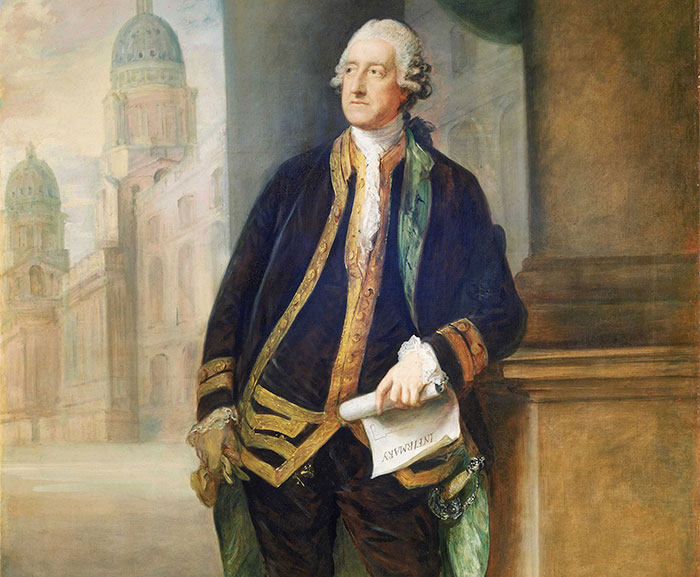 I've always been fond of the exchange between John Montagu and John Wilkes, both British politicians in the 18th century (Montagu was also the 4th Earl of Sandwich, the namesake and possibly inventor of the sandwich).
During one of their many verbal battles, Montagu reportedly spat at Wilkes and said, "Upon my soul, Wilkes, I do not know whether you will die on the gallows or of the pox."
Wilkes replied, "That depends, my lord, on whether I embrace your principles or your mistress."
I've always been fond of the exchange between John Montagu and John Wilkes, both British politicians in the 18th century (Montagu was also the 4th Earl of Sandwich, the namesake and possibly inventor of the sandwich).
During one of their many verbal battles, Montagu reportedly spat at Wilkes and said, "Upon my soul, Wilkes, I do not know whether you will die on the gallows or of the pox."
Wilkes replied, "That depends, my lord, on whether I embrace your principles or your mistress."
We were interested in finding out why some moments in history might be exaggerated for dramatic effect. Dr. Ferguson, from Stetson University, had this to say: "As with anything else, you get more readers!"
He noted that many people write history with a particular moral message in mind. "They leave out inconvenient facts and add in other things that just aren't true in order to fit the narrative," he told Bored Panda via email.
Bored Panda also wanted to learn more about source reliability and the signs that historical events might have happened differently than someone claims. "For original sources, it's good to know who they were writing for. Who was their audience? Often, they were flattering someone powerful," the professor explained.
 This french guy named Favras was being sentenced to death and his last words were "you have made three grammatical errors" when they read his death sentence.
This french guy named Favras was being sentenced to death and his last words were "you have made three grammatical errors" when they read his death sentence.
 When Henry VIII proposed to Christina of Denmark, her reply was,"If I had two heads, I would happily put one at the disposal of the King of England".
When Henry VIII proposed to Christina of Denmark, her reply was,"If I had two heads, I would happily put one at the disposal of the King of England".
"Shakespeare's histories are a classic example... written for the Tudors. Thus, for example, Richard III had to look bad (and hey, he did kill his nephews), as he was defeated by Henry VII Tudor. Older sources tend to embellish a lot in general," Dr. Ferguson said.
"The reliability of sources is improved if multiple sources say more or less the same thing, so different witnesses have the same account," the psychology professor said, adding that if one source is writing generations later, it might be based on a prior source.
"Look at, for instance, the 'official Gospels': they vary on many accounts, but are also similar on some others. Where there's agreement, that increases confidence those events actually occurred and aren't just embellishments." According to Dr. Ferguson, historical accounts that are unflattering for the group writing the account are another good indication of the truth.
 [Olga of Kiev](https://en.wikipedia.org/wiki/Olga_of_Kiev#Regency) has a pretty cool story. Summary:
* Married Prince Igor of Kiev around 903 AD
* When Igor took power, the neighboring Drevlian tribe stopped paying tribute, so Igor went to have a sit-down. He got paid and left, but then decided he wasn't paid enough. So he went back, and the Drevlians didn't appreciate this so they tortured and killed him.
* The Drevlians sent some people to Olga, to encourage her to marry the Drevlian responsible for her husband's death. Olga told them that sounded great, and that the next day she'd have them carried in their boat into her court for a formal announcement.
* Olga had a trench dug overnight. The Drevlians returned with their boat, sat inside, then were carried directly to the trench and the boat was dumped in. As the Drevlians were being buried alive in the trench, '*Olga bent down to watch them as they were buried and “inquired whether they found the honor to their taste.”*'
* Olga then invited the Drevlians to send more envoys to escort her to her new prince. The new group was invited to go have a relaxing bath, and Olga had the bathhouse barred and burned down, with the Drevlians inside.
* Olga then wrote to the Drevlians and asked for a funeral feast where her husband was killed. She went with a small group, mourned at the spot of the murder, then they all had a big feast. The Drevlians drank a lot, and while they slept it off, Olga's group killed like 5,000 of them. She went back home.
* Olga raised an army in Kiev and marched it back to the Drevlians, who holed up in their walls where they held her off for a year. She told them she'd take a tribute of 3 pigeons and 3 sparrows from every house. The Drevlians thought they were getting off easy, so they accepted, and gave her the birds....
* Olga took all the birds, tied a wad of sulfur wrapped in cloth on a string to the birds' feet, lit them up, and let the birds go. They all flew back to their Drevlian homes, which then all caught on fire. As the Drevlians fled the burning city, Olga's army caught them, and killed a bunch, took a bunch of others as slaves, and took tribute from whomever she let survive.
Apparently she was upset about what happened to her husband.
[Olga of Kiev](https://en.wikipedia.org/wiki/Olga_of_Kiev#Regency) has a pretty cool story. Summary:
* Married Prince Igor of Kiev around 903 AD
* When Igor took power, the neighboring Drevlian tribe stopped paying tribute, so Igor went to have a sit-down. He got paid and left, but then decided he wasn't paid enough. So he went back, and the Drevlians didn't appreciate this so they tortured and killed him.
* The Drevlians sent some people to Olga, to encourage her to marry the Drevlian responsible for her husband's death. Olga told them that sounded great, and that the next day she'd have them carried in their boat into her court for a formal announcement.
* Olga had a trench dug overnight. The Drevlians returned with their boat, sat inside, then were carried directly to the trench and the boat was dumped in. As the Drevlians were being buried alive in the trench, '*Olga bent down to watch them as they were buried and “inquired whether they found the honor to their taste.”*'
* Olga then invited the Drevlians to send more envoys to escort her to her new prince. The new group was invited to go have a relaxing bath, and Olga had the bathhouse barred and burned down, with the Drevlians inside.
* Olga then wrote to the Drevlians and asked for a funeral feast where her husband was killed. She went with a small group, mourned at the spot of the murder, then they all had a big feast. The Drevlians drank a lot, and while they slept it off, Olga's group killed like 5,000 of them. She went back home.
* Olga raised an army in Kiev and marched it back to the Drevlians, who holed up in their walls where they held her off for a year. She told them she'd take a tribute of 3 pigeons and 3 sparrows from every house. The Drevlians thought they were getting off easy, so they accepted, and gave her the birds....
* Olga took all the birds, tied a wad of sulfur wrapped in cloth on a string to the birds' feet, lit them up, and let the birds go. They all flew back to their Drevlian homes, which then all caught on fire. As the Drevlians fled the burning city, Olga's army caught them, and killed a bunch, took a bunch of others as slaves, and took tribute from whomever she let survive.
Apparently she was upset about what happened to her husband.
 The fact that the founder of Lamborghini made Lamborghini because his Ferrari broke down and the company screwed him out of a warranty.
The fact that the founder of Lamborghini made Lamborghini because his Ferrari broke down and the company screwed him out of a warranty.
 Diogenes the cynic was a very extreme philosopher who didn’t believe in ANY amount of earthly possessions. Literally the only thing he owned was a tattered robe to cover himself and he lived in a discarded barrel in the middle of the city square. One day he was just chilling, sunbathing in his barrel when Alexander the Great, the most powerful person in the entire world, came to visit him, he was like “Diogenes, I’ve heard such great things about you and your philosophy, if there’s anything at all you want me to do for you, just tell me.” And this absolute mad lad replies “move two paces left, you’re blocking the sunlight” in that same exchange, Alexander tells him “if I weren’t Alexander the Great, I would want to be Diogenes” and Diogenes replies “If I weren’t Diogenes, I would want to be Diogenes as well” what an absolute unit.
Diogenes the cynic was a very extreme philosopher who didn’t believe in ANY amount of earthly possessions. Literally the only thing he owned was a tattered robe to cover himself and he lived in a discarded barrel in the middle of the city square. One day he was just chilling, sunbathing in his barrel when Alexander the Great, the most powerful person in the entire world, came to visit him, he was like “Diogenes, I’ve heard such great things about you and your philosophy, if there’s anything at all you want me to do for you, just tell me.” And this absolute mad lad replies “move two paces left, you’re blocking the sunlight” in that same exchange, Alexander tells him “if I weren’t Alexander the Great, I would want to be Diogenes” and Diogenes replies “If I weren’t Diogenes, I would want to be Diogenes as well” what an absolute unit.
He was also reported to have urinated on some people who insulted him, defecated in the theatre, and masturbated in public, but he did love his dogs.
"People tend to embellish in ways that flatter themselves, their patron or groups, so unflattering accounts tend to be more likely to be true, all things being equal."
Meanwhile, the psychology expert shared his thoughts on how someone can tell that claims made in the present are likely exaggerated or changed. He said that one thing to look out for are claims that "map on nicely" on contemporary moral or social controversies.
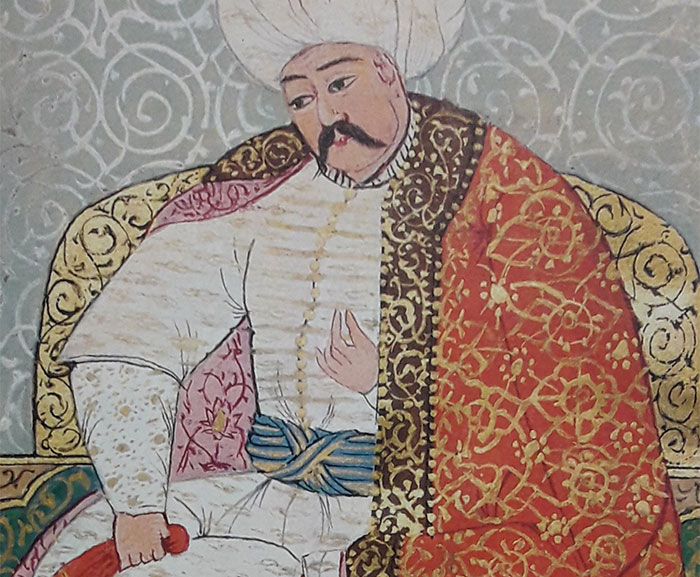 Oh, remembered another one. Yeah, I know, Ottoman again but these guys had 600 years and have performed some big f**k you's all around. This is more like a literal "eat s**t" moment but also funny.
Sultan Selim, receives a chest from the Iranian King of the time. The two sides are not really fond of each other and the tension is definitely big. But the chest is covered with jewels and quality fabrics, looking good... except the smell. It smells awful. While the council inspects the chest and the gift, they find human feces placed in bottom. Yes, Iranians sent literal s**t to the Ottomon King of the time.
You may think that's the f**k you moment, but there's more.
Selim, being the king, orders another chest to be prepared as a return gift. Only difference, they put Turkish Delight instead of feces. Oh, and a small, itty bitty note...
"Everyone offers what they eat."
Oh, remembered another one. Yeah, I know, Ottoman again but these guys had 600 years and have performed some big f**k you's all around. This is more like a literal "eat s**t" moment but also funny.
Sultan Selim, receives a chest from the Iranian King of the time. The two sides are not really fond of each other and the tension is definitely big. But the chest is covered with jewels and quality fabrics, looking good... except the smell. It smells awful. While the council inspects the chest and the gift, they find human feces placed in bottom. Yes, Iranians sent literal s**t to the Ottomon King of the time.
You may think that's the f**k you moment, but there's more.
Selim, being the king, orders another chest to be prepared as a return gift. Only difference, they put Turkish Delight instead of feces. Oh, and a small, itty bitty note...
"Everyone offers what they eat."
 After The Hobbit was published in 1937, Berlin publisher Rütten & Loening wanted to circulate the book in Germany, but asked Tolkien for proof of his "Aryan descent". [Tolkien drafted two replies](http://www.openculture.com/2014/04/j-r-r-tolkien-snubs-a-german-publisher.html), and the TL;DR is that he - a *famous* etymologist - not only questioned whether or not they knew what the word Aryan actually meant, but included the line "*But if I am to understand that you are enquiring whether I am of Jewish origin, I can only reply that I regret that I appear to have no ancestors of that gifted people*".
After The Hobbit was published in 1937, Berlin publisher Rütten & Loening wanted to circulate the book in Germany, but asked Tolkien for proof of his "Aryan descent". [Tolkien drafted two replies](http://www.openculture.com/2014/04/j-r-r-tolkien-snubs-a-german-publisher.html), and the TL;DR is that he - a *famous* etymologist - not only questioned whether or not they knew what the word Aryan actually meant, but included the line "*But if I am to understand that you are enquiring whether I am of Jewish origin, I can only reply that I regret that I appear to have no ancestors of that gifted people*".
Then what does it mean? Like, seriously, I only know it as the Nazi ethnicity word.
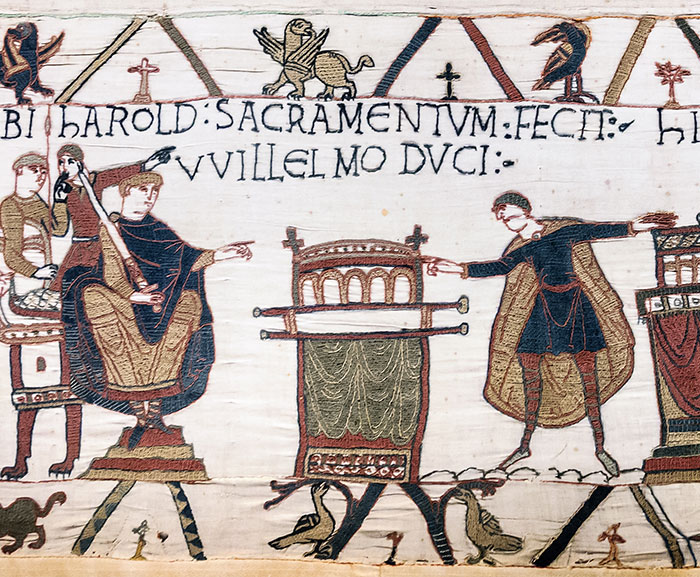 > Harald Hardrada: How much land will you give me?
> Harald Godwinson: Seven feet of English soil, for you are taller than most men.
> Harald Hardrada: How much land will you give me?
> Harald Godwinson: Seven feet of English soil, for you are taller than most men.
These narratives are designed to make the person stating them feel morally good. However, this comes at a cost. Namely, that the source doesn't recognize "the murky nuances of most of history."
One example, according to Dr. Ferguson is the idea that slavery was 'invented' by Europeans for North America. "Brutal slavery existed throughout history, and continues in much of the world to the present day... we just call it 'human trafficking' now."
Similarly, a red flag is when a source creates a binary—aka Manichean—narrative with clearly 'good' and 'bad' sides. Romanticizing one group of people and painting the other as complete villains ignores a lot of the nuances. Progressives and conservatives are both known to spin historical narratives, and focus on or downplay certain events, for their own ends.
 Winston Churchill and a woman had a conversation:
Woman: Mr Churchill you are drunk!
Winston: And you my dear are ugly, but tomorrow i shall be sober
Winston Churchill and a woman had a conversation:
Woman: Mr Churchill you are drunk!
Winston: And you my dear are ugly, but tomorrow i shall be sober
Lady Nancy Astor: ‘Winston, if you were my husband, I'd poison your tea’. Churchill: ‘Nancy, if I were your husband, I'd drink it.’
 The winter war. When the soviet union invaded Finland expecting it to be a walkover. The fins captured entire divisions with small amounts of men, had no tanks or air force and inflicted massive losses on the Russians. The most effective sniper of all time "the white death" was fighting for the fins & there are loads of stories of russian soldiers waking up and finding their fellow comrades frozen solid with their throats cut. The Russians eventually overran the Finns but were internationally humiliated and had to settle with taking some slithers of land from the border as opposed to occupying the country.
The winter war. When the soviet union invaded Finland expecting it to be a walkover. The fins captured entire divisions with small amounts of men, had no tanks or air force and inflicted massive losses on the Russians. The most effective sniper of all time "the white death" was fighting for the fins & there are loads of stories of russian soldiers waking up and finding their fellow comrades frozen solid with their throats cut. The Russians eventually overran the Finns but were internationally humiliated and had to settle with taking some slithers of land from the border as opposed to occupying the country.
 A town in germany pretend it was part of Switzerland during ww2
A town in germany pretend it was part of Switzerland during ww2
That's Konstanz. To be fair, it's almost like they're one city with Kreuzlingen and the way they pretended to be part of that town is that they kept on the lights at the same time as Kreuzlingen. Lived there for two years ;)
As a rule of thumb, it’s best to be slightly skeptical about everything and anything that you read online. So before you share or reshare some fact or claim that you’ve stumbled upon on social media, take a moment to do some research.
Now, we get it, we’re all super busy with work, school, parenting, and moonlighting as superheroes. There are very few people who have the time to double-check and cross-reference every single fact they find online. So your time and energy are better spent looking at the source that made the claim in the first place. Are they reliable? What kinds of biases do they have?
Broadly speaking, there’s no such thing as a ‘perfect’ source. However, that’s not to say that all sources are alike. Far from it! The very best sources value journalistic integrity and transparency, do proper research, and admit to having made mistakes (and then correct them!).
 Cromwell was so hated that after he was dead and buried, they exhumed his corpse so that they could execute him. He was drawn and quartered with his head piked on London Bridge two and a half years after he died.
Cromwell was so hated that after he was dead and buried, they exhumed his corpse so that they could execute him. He was drawn and quartered with his head piked on London Bridge two and a half years after he died.
 I think it's Sir Sidney Smith who had just been captured by Napoleon, writing a message for him on the wall of his cell that read something amongst the lines of "I'm not angry, because I am at the bottom now, and you are at the top, but when the wheel of fortune is spun, you will begin to fall, and I shall rise higher than I've ever been before" and Napoleon, who later got locked up in the very same cell, then read that message.
Sir Sidney Smith was an awesome character, by the way. You should definitely look up on him.
I think it's Sir Sidney Smith who had just been captured by Napoleon, writing a message for him on the wall of his cell that read something amongst the lines of "I'm not angry, because I am at the bottom now, and you are at the top, but when the wheel of fortune is spun, you will begin to fall, and I shall rise higher than I've ever been before" and Napoleon, who later got locked up in the very same cell, then read that message.
Sir Sidney Smith was an awesome character, by the way. You should definitely look up on him.
"Smith had managed to run up significant debts through his diplomatic expenses, which the British government proved to be very slow in reimbursing. In Britain, at that time debtors were often imprisoned until their debts were paid, so Smith moved his family to France, settling in Paris. Despite frequent attempts to obtain a seagoing position, he was never to hold a command again. He died on 26 May 1840 of a stroke. He is buried with his wife in Père Lachaise Cemetery in Paris. "
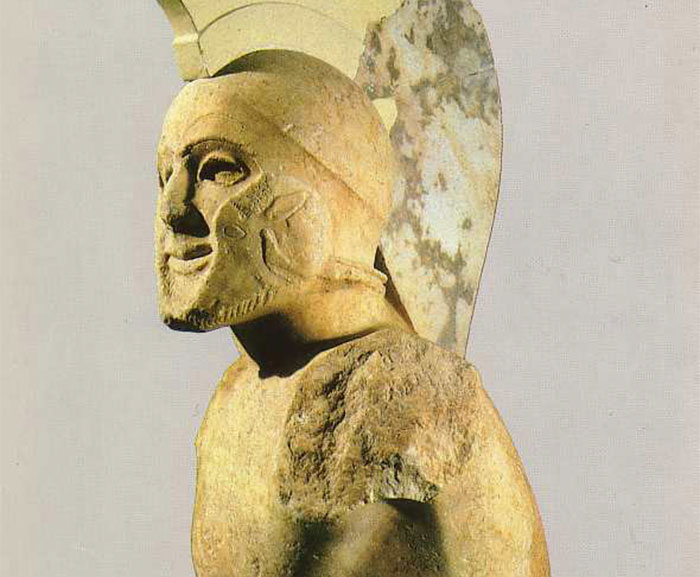 Probably something everyone knows by now but my favorites are the ways the Spartans would talk s**t as part of their culture. King Agesilaus of Sparta being given a tour of another city called its walls "wonderful women's quarters". Or when Philip 2 of Macedon, Alexander's daddy, said "If I win this war you will be slaves forever," the Spartans simply replied "If."
Probably something everyone knows by now but my favorites are the ways the Spartans would talk s**t as part of their culture. King Agesilaus of Sparta being given a tour of another city called its walls "wonderful women's quarters". Or when Philip 2 of Macedon, Alexander's daddy, said "If I win this war you will be slaves forever," the Spartans simply replied "If."
Spartan women handed their menfolk their shields with the words: "Come back with it or on it." Even Spartan women were tough as iron.
So, for example, if you find an outlet that links back to the original sources for any claims they make, you can trust them more than their competitors. This way, they’re allowing their audience to double-check any info they share. The quality of the original sources themselves matters to a massive extent as well. There’s a huge difference between a peer-reviewed academic journal and random gossip shared on a sketchy internet forum.
You should also always consider what the goal of someone making a specific claim is. Are they looking to make money? Do they have a particular political agenda? How well-versed is the person in that specific field? You’ll often find that people are simply parroting what they hear elsewhere or they might be biased when it comes to certain topics.
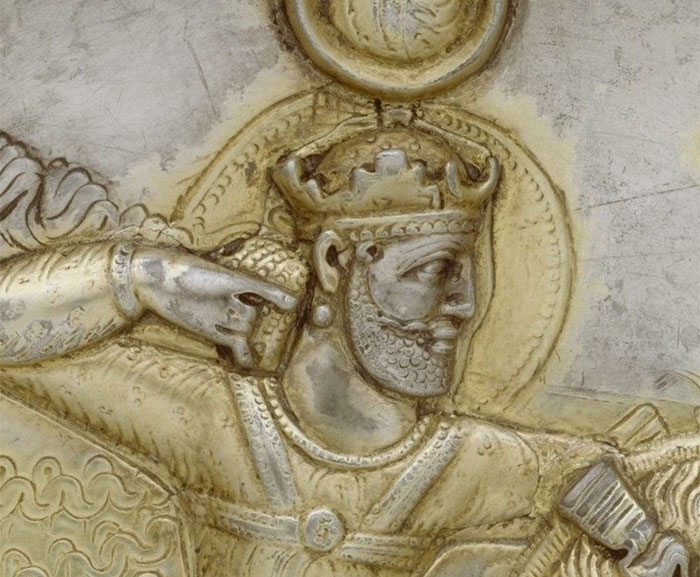 The Persians and the Byzantines had a treaty, which the Byzantines then broke. The leader of the Persians, Khosrau, decided he couldn't have that. He marched through the Byzantine empire, looting towns, until he got to the Mediterranean Sea. He rigged a chariot race so that the Byzantine Emperor's favourite team would lose. Finally, after the Byzantine Emperor had paid him to leave and stop sacking towns, Khosrau headed home, sacking every town he came across.
The best part? He came to a major city, Antioch. He took notes of the city's layout, then captured the whole population and burnt the city to the ground. When he got back to the Persian Empire, he used the money he had gained from his recent sacking of towns to build a new city, with the exact same layout as Antioch. He moved all the original citizens of Antioch into this new city. He named the city Weh Antiok Khusrau, which translates roughly as 'Khosrau's Better Version of Antioch'.
The Persians and the Byzantines had a treaty, which the Byzantines then broke. The leader of the Persians, Khosrau, decided he couldn't have that. He marched through the Byzantine empire, looting towns, until he got to the Mediterranean Sea. He rigged a chariot race so that the Byzantine Emperor's favourite team would lose. Finally, after the Byzantine Emperor had paid him to leave and stop sacking towns, Khosrau headed home, sacking every town he came across.
The best part? He came to a major city, Antioch. He took notes of the city's layout, then captured the whole population and burnt the city to the ground. When he got back to the Persian Empire, he used the money he had gained from his recent sacking of towns to build a new city, with the exact same layout as Antioch. He moved all the original citizens of Antioch into this new city. He named the city Weh Antiok Khusrau, which translates roughly as 'Khosrau's Better Version of Antioch'.
 Sony releasing the PlayStation after Nintendo’s “f you” is one of the biggest technological Uno reverse cards in history.
Sony releasing the PlayStation after Nintendo’s “f you” is one of the biggest technological Uno reverse cards in history.
I remember that one. Sony and Nintendo had an agreement that Sony would make a CD rom drive for the SNES (that's why there is an expansion slot on the bottom of the SNES) When Sony had completed most of the work Nintendo cancelled the agreement hoping to scuttle Sony so they could take it over but Sony very quickly added their own parts and software and produced the first Playstation
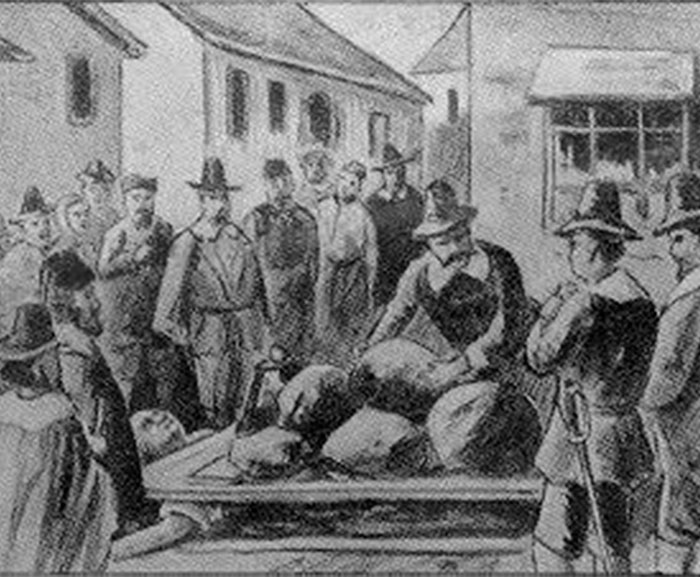 "More weight." --Giles Corey
"More weight." --Giles Corey
One of the victims of the Salem Witch trial. Fyi - none were burned. Most were hanged, this poor guy had rock put on him until he was crushed to death.
Though complete neutrality is close to impossible, it’s well worth the effort to find sources and people you can trust to put in the effort to show a broader, more nuanced picture of the world.
At the end of the day, don’t forget to trust your gut. If you feel that some sort of claim is ludicrous or sounds fishy, do some digging!
 A governor put a bounty of $500 on the pirate Jean Lefitte. The pirate's response was to put a $5,000 bounty on the governor's head.
Also, Julius Cesar was kidnapped & wasn't released until a ransom was paid. After he was released, he raised an army & went after his kidnappers. Once they were caught he had them crucified.
A governor put a bounty of $500 on the pirate Jean Lefitte. The pirate's response was to put a $5,000 bounty on the governor's head.
Also, Julius Cesar was kidnapped & wasn't released until a ransom was paid. After he was released, he raised an army & went after his kidnappers. Once they were caught he had them crucified.
Caesar actually increased the ransom the pirates demanded as he thought the initial figure was too low for someone of his importance. While he was with the pirates, he made himself comfortable, bossing around the pirates, making them listen to his poems and speeches, and basically acting in every way opposite to a captive. He also occasionally threatened to have the pirates crucified, which the pirates laughed off. I don't think they were laughing when Caesar was crucifying them.
 I have 2. 1: when Charles DeGaul became President of France, he pulled the country out of NATO and then asked President Johnson (I think it was Johnson at least) to pull all US troops out of France to which he replied "does that include the ones buried in Normandy?"
2: During the cold war, the leader of Yugoslavia, Tito, was getting aid from the east and the west. Stalin didn't like that so he sent an assassin, he was stopped so Stalin sent another assassin and that one was stopped so after awhile Tito got annoyed by all the assassins so he sent a letter to Stalin saying "stop sending people to kill me. If you do not stop sending killers I will send one to Moscow and I won't have to send a second."
I know more but that's just off the top of my head
I have 2. 1: when Charles DeGaul became President of France, he pulled the country out of NATO and then asked President Johnson (I think it was Johnson at least) to pull all US troops out of France to which he replied "does that include the ones buried in Normandy?"
2: During the cold war, the leader of Yugoslavia, Tito, was getting aid from the east and the west. Stalin didn't like that so he sent an assassin, he was stopped so Stalin sent another assassin and that one was stopped so after awhile Tito got annoyed by all the assassins so he sent a letter to Stalin saying "stop sending people to kill me. If you do not stop sending killers I will send one to Moscow and I won't have to send a second."
I know more but that's just off the top of my head
Just to note, De Gaulle didn't pull France out of NATO. He withdrew France from NATO's combined military command because he thought the USA had too much say in it. France is still part of NATO, as one of the original 14 founding countries.
 [operation Paul Bunyan](https://en.m.wikipedia.org/wiki/Korean_axe_murder_incident)
Basically the United States tried to trim a tree in the NK/SK DMZ that was supposedly planted by the supreme leader or something. While trimming the tree NK reacted and killed two soldiers. 3 days later a joint operation launched where South Korea and the US shows up with extreme force while the North Koreans get to watch the sacred tree nearly entirely cut down.
[operation Paul Bunyan](https://en.m.wikipedia.org/wiki/Korean_axe_murder_incident)
Basically the United States tried to trim a tree in the NK/SK DMZ that was supposedly planted by the supreme leader or something. While trimming the tree NK reacted and killed two soldiers. 3 days later a joint operation launched where South Korea and the US shows up with extreme force while the North Koreans get to watch the sacred tree nearly entirely cut down.
Lmao I had to research this one for a school project. Basically the U.S. soldiers were cutting down a tree and the NK soldiers were watching without doing anything but then the NK soldiers grabbed axes and killed two of the officers then chased the rest off. In retaliation the U.S. army brought a ton of soldiers helecopter an and weapons and cut the tree down in full daylight even pulling up and burning the stump.
As for historians themselves, the University of Oxford suggests that they sharpen their skills by reading lots of books and journal articles about the topics they’re passionate about.
“Work out what you think about what you read. For instance, ask yourself: what is the author’s argument? Is it convincing? Why (or why not)? What evidence does the author use to make their argument? What is missing from their approach to the past? What else do historians need to find out? What primary sources would enable historians to understand this topic better?” the university sets out some guidelines.
 I personally like Colonel John Sedgwick, a Unionist Colonel who was shot and killed by a sniper. His famous last words were "They couldn't hit an elephant at this distance."
I personally like Colonel John Sedgwick, a Unionist Colonel who was shot and killed by a sniper. His famous last words were "They couldn't hit an elephant at this distance."
 On his Deathbed Voltaire was asked to renounce Satan to save his soul. His response, "Now, now my good man, this is no time to be making enemies." One last shot at stupidity.
Edit: for those misunderstanding, I'm saying V "took a shot at" stupidity, in that on his death bed he pointed out the ridiculousness of such a stupid belief (deathbed conversion + afterlife) put in practice
On his Deathbed Voltaire was asked to renounce Satan to save his soul. His response, "Now, now my good man, this is no time to be making enemies." One last shot at stupidity.
Edit: for those misunderstanding, I'm saying V "took a shot at" stupidity, in that on his death bed he pointed out the ridiculousness of such a stupid belief (deathbed conversion + afterlife) put in practice
No one is misunderstanding you. I will see you in the afterlife muhahahaha.
 I forgot the name of the place, but at obe point during Alexander the Great campaign in Persia, right by the coast, there was a fortress on a Island. So he just filled the gap, turned it into a peninsula and beseiged it.
I forgot the name of the place, but at obe point during Alexander the Great campaign in Persia, right by the coast, there was a fortress on a Island. So he just filled the gap, turned it into a peninsula and beseiged it.
Historians shouldn’t just spend their time in the library among gorgeous dusty books, however. They should also engage with the news, visit museums and historical sites, listen to podcasts, and take part in their academic community’s events.
For some more dramatic moments in history, take a peek at Bored Panda's previous post.
 TL:DR Arlington natl cemetery was Robert E Lee’s front yard.
During the American Civil War, when it became difficult to bury Union dead in appropriate cemetery’s, the quartermaster directed them to be buried in Robert E. Lee’s front yard, so that for the rest of his life, he would be reminded of the damage he caused the country ever day simply by coming and going from his home. And that boys and girls, is THE reason Arlington Cemetery became what it is. In an added twist, Arlington house and plantation were owned and built by George Washington’s adopted son, George Washington Custis, who’s daughter Mary, married Robert E. Lee (at the time a US Army office). Their son George Washington Custis Lee served in the Confederate Army. The Lee’s sued the Feds for illegally seizing their property, and years later, after Robert and Mary’s deaths, they won the suit in the US Supreme Court. Their heir, Robert E Lee Jr, knowing the impossibility of moving the thousands buried there. Offered to sell it to the US Federal Govt. who agreed to purchase it. Setting the stage for a remarkable occasion, where then Secretary of War, Robert Todd Lincoln (yes Abe and Mary’s boy) handed Robert E Lee Jr a check for approx $150k and purchased the plantation.
TL:DR Arlington natl cemetery was Robert E Lee’s front yard.
During the American Civil War, when it became difficult to bury Union dead in appropriate cemetery’s, the quartermaster directed them to be buried in Robert E. Lee’s front yard, so that for the rest of his life, he would be reminded of the damage he caused the country ever day simply by coming and going from his home. And that boys and girls, is THE reason Arlington Cemetery became what it is. In an added twist, Arlington house and plantation were owned and built by George Washington’s adopted son, George Washington Custis, who’s daughter Mary, married Robert E. Lee (at the time a US Army office). Their son George Washington Custis Lee served in the Confederate Army. The Lee’s sued the Feds for illegally seizing their property, and years later, after Robert and Mary’s deaths, they won the suit in the US Supreme Court. Their heir, Robert E Lee Jr, knowing the impossibility of moving the thousands buried there. Offered to sell it to the US Federal Govt. who agreed to purchase it. Setting the stage for a remarkable occasion, where then Secretary of War, Robert Todd Lincoln (yes Abe and Mary’s boy) handed Robert E Lee Jr a check for approx $150k and purchased the plantation.
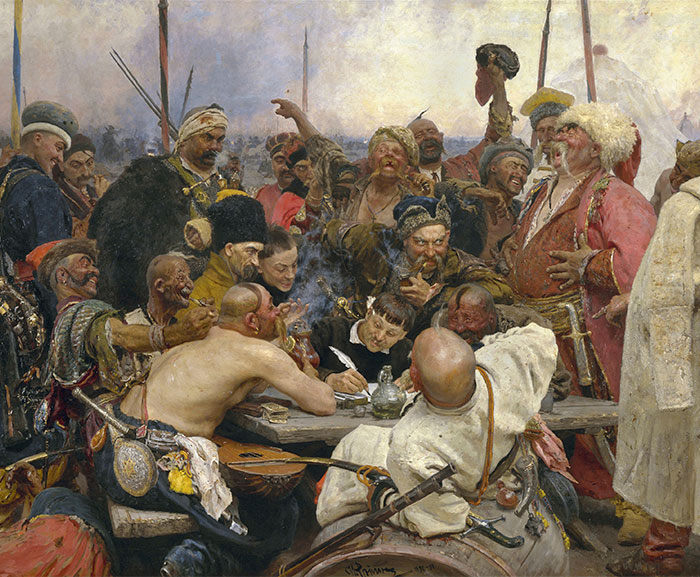 The reply of the Zaporozhian Cossacks. They defeat the Ottoman sultan's army, but he sends them a message demanding their surrender, using a long and ridiculous title. They send back a reply mocking his titles, and telling him, literally, "f**k your mother" and "kiss our a*s."
The reply of the Zaporozhian Cossacks. They defeat the Ottoman sultan's army, but he sends them a message demanding their surrender, using a long and ridiculous title. They send back a reply mocking his titles, and telling him, literally, "f**k your mother" and "kiss our a*s."
[https://en.wikipedia.org/wiki/Reply_of_the_Zaporozhian_Cossacks]
Insults ranging from "You're the sausage of Alexandria" to "The Devil sh*ts and your army eats. . . " Great stuff. . .
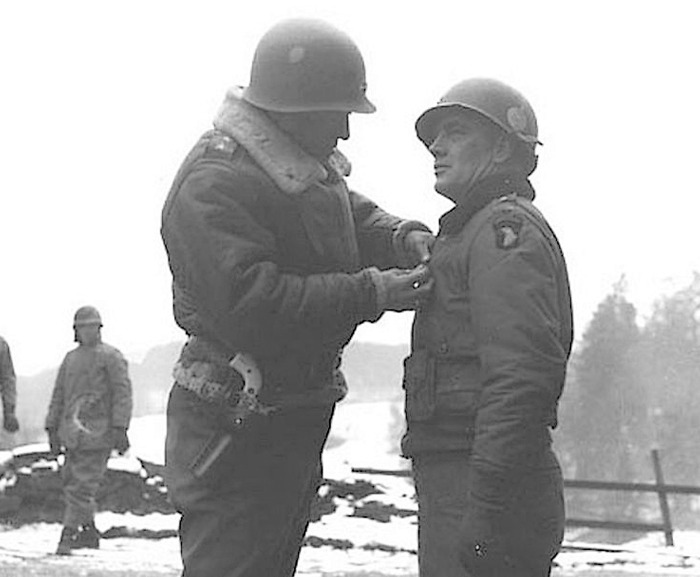 This exchange between General Heinrich Freiherr von Lüttwitz and General Anthony Clement McAuliffe:
>To the U.S.A. Commander of the encircled town of Bastogne.
The fortune of war is changing. This time the U.S.A. forces in and near Bastogne have been encircled by strong German armored units. More German armored units have crossed the river Our near Ortheuville, have taken Marche and reached St. Hubert by passing through Hompre-Sibret-Tillet. Libramont is in German hands.
There is only one possibility to save the encircled U.S.A. troops from total annihilation: that is the honorable surrender of the encircled town. In order to think it over a term of two hours will be granted beginning with the presentation of this note.
If this proposal should be rejected one German Artillery Corps and six heavy A. A. Battalions are ready to annihilate the U.S.A. troops in and near Bastogne. The order for firing will be given immediately after this two hours term. All the serious civilian losses caused by this artillery fire would not correspond with the well-known American humanity.
The German Commander.
>To the German Commander.
*NUTS!*
The American Commander.
(The artillery fire never happened (though there were assaults, including by *glider infantry*, and bombings), and General McAuliffe's forces (the 101^st Airborne) held off the Wehrmacht until reinforcements (the 4^th Armored Division) arrived.)
This exchange between General Heinrich Freiherr von Lüttwitz and General Anthony Clement McAuliffe:
>To the U.S.A. Commander of the encircled town of Bastogne.
The fortune of war is changing. This time the U.S.A. forces in and near Bastogne have been encircled by strong German armored units. More German armored units have crossed the river Our near Ortheuville, have taken Marche and reached St. Hubert by passing through Hompre-Sibret-Tillet. Libramont is in German hands.
There is only one possibility to save the encircled U.S.A. troops from total annihilation: that is the honorable surrender of the encircled town. In order to think it over a term of two hours will be granted beginning with the presentation of this note.
If this proposal should be rejected one German Artillery Corps and six heavy A. A. Battalions are ready to annihilate the U.S.A. troops in and near Bastogne. The order for firing will be given immediately after this two hours term. All the serious civilian losses caused by this artillery fire would not correspond with the well-known American humanity.
The German Commander.
>To the German Commander.
*NUTS!*
The American Commander.
(The artillery fire never happened (though there were assaults, including by *glider infantry*, and bombings), and General McAuliffe's forces (the 101^st Airborne) held off the Wehrmacht until reinforcements (the 4^th Armored Division) arrived.)
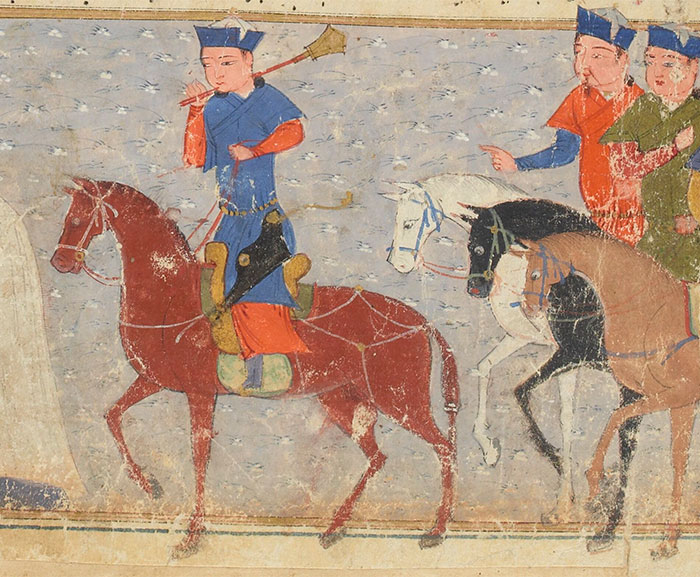 Don't remember who it was, but there was a conqueror who sent a messenger to another country and the promptly killed said messenger, so the conqueror redirected a river to completely wipe out said country.
Don't remember who it was, but there was a conqueror who sent a messenger to another country and the promptly killed said messenger, so the conqueror redirected a river to completely wipe out said country.
 Caesar. He was caught by pirates who sent a ransom note and asked for lot of silver (a few tonnes but can't remember the exact number). When the silver was delivered, Cesar said that he'll "raise an army and kill the lot of you." To which the pirate's laughed. Once Cesar sent word to Rome, he took a few Legions to the pirate's home base and literally wiped out the entire base and got the ransom back.
Caesar. He was caught by pirates who sent a ransom note and asked for lot of silver (a few tonnes but can't remember the exact number). When the silver was delivered, Cesar said that he'll "raise an army and kill the lot of you." To which the pirate's laughed. Once Cesar sent word to Rome, he took a few Legions to the pirate's home base and literally wiped out the entire base and got the ransom back.
 The Scuttling at Scapa Flow. In 1919, the Germany High Seas fleet scuttled itself 1 day before the deadline of what the Allies were to agree about doing with it. All whilst under the British watch only able to save a small portion of the ships scuttled while the rest were to be taken care of over the course of 20 years. Although it’s debatable if this really counts as a “f**k you” moment as it was more in the sake of honor either way this really screwed with the delegation.
[Here’s a video on it and it’s quite interesting.](https://youtu.be/o1Vn2lkX2yA)
The Scuttling at Scapa Flow. In 1919, the Germany High Seas fleet scuttled itself 1 day before the deadline of what the Allies were to agree about doing with it. All whilst under the British watch only able to save a small portion of the ships scuttled while the rest were to be taken care of over the course of 20 years. Although it’s debatable if this really counts as a “f**k you” moment as it was more in the sake of honor either way this really screwed with the delegation.
[Here’s a video on it and it’s quite interesting.](https://youtu.be/o1Vn2lkX2yA)
It wasn't an 'F-you' at all, it was misunderstanding and miscommunication. It was the end of the war and the treaty of Versailles was still being ironed out (with GB trying to get as sweet a deal as possible). The German officers, while aware of the treaty talks, were being kept in the dark about the progress, so as far as they were concerned, their standing orders...well... stood. They had intended to had over the ships if the German government agreed to it, but were unaware that that had already been agreed. The British, intent on keeping the German officer in the dark, did not think to tell the Germans that the deadline for the treaty signing was extended, So when the deadline came and went, the Germans carried out what they believed to be their duty.
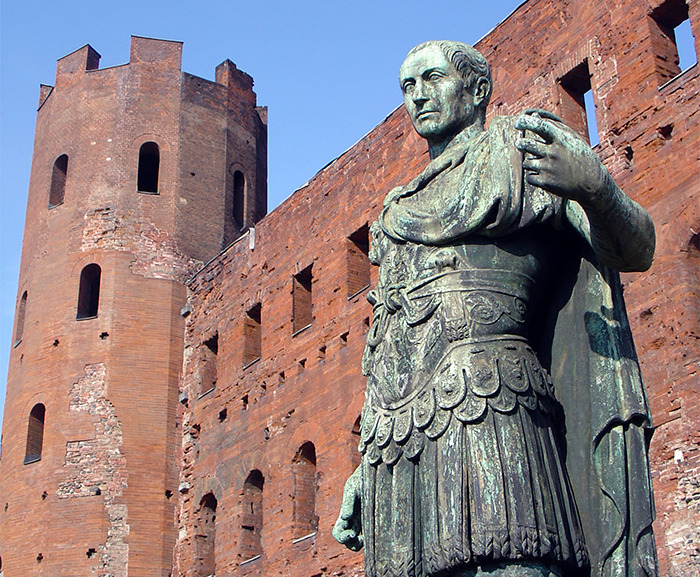 That one time that Caesar was besieging a castle, got surrounded, and built a castle around that castle, so instead of being attacked, he to was besieged. He beat the first castle, then beat the reinforcements.
Or when Hitler had France sign the surrender treaty in the same rail car Germany signed in WWI.
Or the grand and pompous display of having a bridge built across a Bay for the sole purpose of riding your horse across, just to spite those in the Senate that said you'd only make a good emperor after you rode a horse across a Bay with out swimming. Forget what the name of that Roman Emperor was.
That one time that Caesar was besieging a castle, got surrounded, and built a castle around that castle, so instead of being attacked, he to was besieged. He beat the first castle, then beat the reinforcements.
Or when Hitler had France sign the surrender treaty in the same rail car Germany signed in WWI.
Or the grand and pompous display of having a bridge built across a Bay for the sole purpose of riding your horse across, just to spite those in the Senate that said you'd only make a good emperor after you rode a horse across a Bay with out swimming. Forget what the name of that Roman Emperor was.
Oy. Caesar besieged the town of Alesia in what is modern day France (located on Mont-Auxois, near Alise-Sainte-Reine in Burgundy, France) opposite Vercingetorix. In roughly a month's time, Caesar's army built a massive amount of fortifications, including a trench for soldiers, an anti-cavalry moat, towers at regular intervals, and booby traps in front of the trenches, intending to starve out the inhabitants of Alesia. However, messengers managed to get through from Vercingetorix to his reserves. Once Caesar caught wind of this, his army built a second round of fortifications, this time around themselves, locking him and his soldiers between the two walls. All in all, about 25 miles of these walls were built. And it worked. Vercingetorix surrendered and was brought to Rome in chains to be a part of Caesar's triumphal procession through the city, before he was beheaded. A large copper statue of Vercingetorix now stands in Alesia as a memorial.
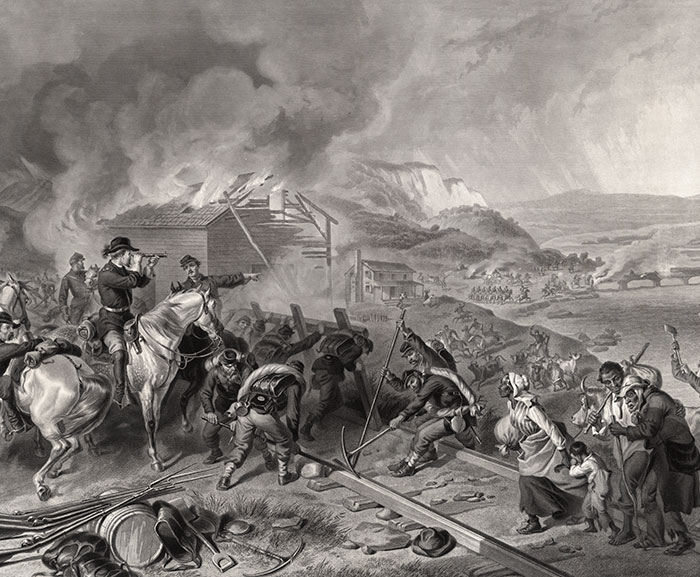 General Sherman's March to the Sea. Burnt the f**k out of everything in his path.
General Sherman's March to the Sea. Burnt the f**k out of everything in his path.
 It's a bit understated, but the Battle of Surigao Strait qualifies for me.
The American battleship line was primarily made of ships that had been damaged or sunk during the Pearl Harbor attack. Together they sank the IJN battleship *Yamashiro,* which had been part of the escort for the carrier force that hit Pearl Harbor. They probably would've also sunk her sister ship *Fuso,* which also had been in that escort fleet, had she not been torpedoed and sunk earlier in the battle.
It's a bit understated, but the Battle of Surigao Strait qualifies for me.
The American battleship line was primarily made of ships that had been damaged or sunk during the Pearl Harbor attack. Together they sank the IJN battleship *Yamashiro,* which had been part of the escort for the carrier force that hit Pearl Harbor. They probably would've also sunk her sister ship *Fuso,* which also had been in that escort fleet, had she not been torpedoed and sunk earlier in the battle.
 The biggest "f**k you" moment in the history of technology: Torvalds' statement about cooperation with Nvidia
The biggest "f**k you" moment in the history of technology: Torvalds' statement about cooperation with Nvidia
 So Egypt you wanna attack me? F**k you I'm taking half your country
Now I'm gonna give it back because nobody wants to live in the f*****g desert when you can live in the city?
OH right you don't have a place in your country that isnt a f*****g desert
So Egypt you wanna attack me? F**k you I'm taking half your country
Now I'm gonna give it back because nobody wants to live in the f*****g desert when you can live in the city?
OH right you don't have a place in your country that isnt a f*****g desert
Not quite as extreme as the others on here but: Lord Byron. While at college he was told it was against rules to have a pet dog, so he went out and got a pet bear instead.
Didn't he arrived riding on the bear and got bit in the leg?
Load More Replies...My favorite historical figure is Götz von Berlichingen, a German knight who was really damn badass! He lost his right hand to a cannonball and had it replaced with an iron prosthesis that was so delicate he could write with it (which he was very proud of). Dude was captured several times during several wars and caused enough ruckus that even the emperor and Imperial Chamber Court heard of him. He also kidnapped a bishop for ransom and plundered his territories because he didn't like him, then was besieged by the troops of the Swabian League. However, be refused to leave his stronghold and remained camping there for weeks, doing nothing but telling the messenger in front of his door that he could "Lick my a$$!" (So he pretty much invented that saying.) He actually lived quite long and spent his entire retirement at his stronghold getting drunk.
The prosthetic arm can be seen in a museum in Bayern btw
Load More Replies...Some of these were pretty good but a full third of them were incorrect in some way. Many read like they were written by HS sophomores (...that one time...I forgot who but...).
They were so badly written, I just came down here for the comments! LOL
Load More Replies...Not quite as extreme as the others on here but: Lord Byron. While at college he was told it was against rules to have a pet dog, so he went out and got a pet bear instead.
Didn't he arrived riding on the bear and got bit in the leg?
Load More Replies...My favorite historical figure is Götz von Berlichingen, a German knight who was really damn badass! He lost his right hand to a cannonball and had it replaced with an iron prosthesis that was so delicate he could write with it (which he was very proud of). Dude was captured several times during several wars and caused enough ruckus that even the emperor and Imperial Chamber Court heard of him. He also kidnapped a bishop for ransom and plundered his territories because he didn't like him, then was besieged by the troops of the Swabian League. However, be refused to leave his stronghold and remained camping there for weeks, doing nothing but telling the messenger in front of his door that he could "Lick my a$$!" (So he pretty much invented that saying.) He actually lived quite long and spent his entire retirement at his stronghold getting drunk.
The prosthetic arm can be seen in a museum in Bayern btw
Load More Replies...Some of these were pretty good but a full third of them were incorrect in some way. Many read like they were written by HS sophomores (...that one time...I forgot who but...).
They were so badly written, I just came down here for the comments! LOL
Load More Replies...
 Dark Mode
Dark Mode 

 No fees, cancel anytime
No fees, cancel anytime 










































































